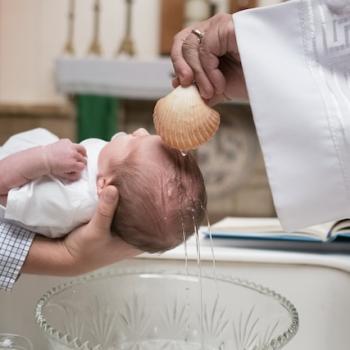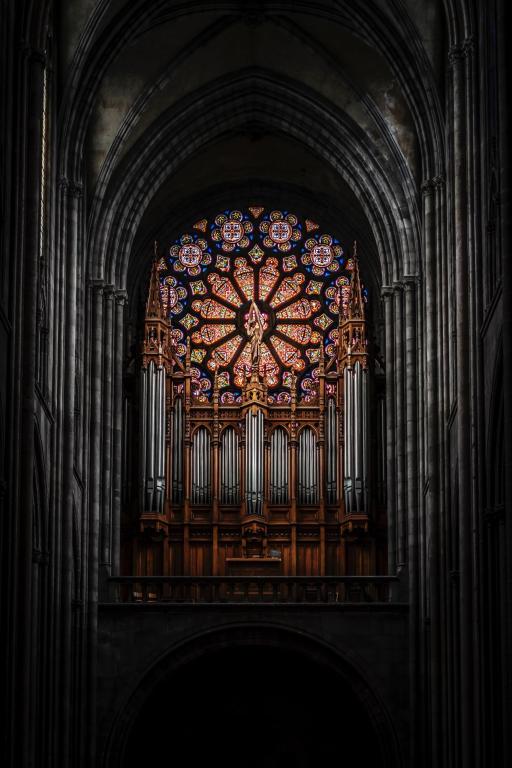[Note: In this third in a series of articles “On Being the Church” it will be clear that I make reference to my own community in Brentwood, TN, but the examples for our own life obviously has application to any other church.]
In what we call our Friday Friars men’s Bible study at Church of the Good Shepherd in Brentwood, Tennessee, we were working our way through the Gospel of Mark when my wife and I arrived in mid-October of 2019. We finished four weeks ago. Imagine what would have happen if we studied Luke’s Gospel. Mark contains 14,949 words. Luke’s Gospel contains 25,640. My rough calculations indicate we would have nine more months to go.
But you can’t rush profundity. And one of the issues we have been exploring is the meaning of three interrelated phrases that appear in Mark and in our text today from Paul’s second letter to the Corinthians: the phrases “Kingdom of God,” “eternal life,” and “the weight of glory.”
In discussing those concepts we discovered that for many of us – growing up – both of these phrases seemed to refer to something entirely future tense. Something you had to wait for. Something that you can only have on the other side of the grave.
It’s not that we weren’t listening or misheard what we were told. I am fairly certain that this is a common impression, a product of what I would call popular religious consciousness. There is a lot of preaching out there that would leave you with that impression about life in the church.
Focused on what I would call “positional righteousness,” this way of thinking emphasizes that the big, decisive, all important spiritual moment in life is when you declare Jesus your Lord and Savior – the one in which you move your name from the “Damned and going to hell” column to the “Saved and going to heaven” column. Church on this reading of things is Noah’s ark. After you get on board the only thing to do is to hold on, hunker down and hope you don’t do something to get yourself thrown overboard.
The strength of this approach to describing life in the church is that it’s simple, direct, and focused on a single life-decision. It offers a certain kind of experience. And in some cases it even requires a certain kind of language.
To a degree, it even captures the spiritual experience that many people have. I don’t doubt, for example, that some people – even a lot of people – experience a crisis or watershed moment in their spiritual lives at some point. A moment when they discover that they are headed the wrong direction. A moment when they are clear that the way in which they navigate life is doing damage to themselves and to those around them. And that realization often dawns on people in an instance, or in a crisis after a boatload of denial springs a leak. I am also sure that what many people need to say, is “Lord, save me.” “Save me from my addiction, my bitterness, my jealousy.” So, to throw contempt on this insight into the spiritual life is to close ourselves off to some of what God wants to tell us about the spiritual life.
But there are still problems with thinking of God’s promises as future tense and life in the church as life on an ark.
For one thing, just as surely as there are those who experience a crisis in their lives, there are those whose experience of God has felt like growing up in a family from which they have never felt estranged. Some people feel embraced from the moment that were baptized and they have never experienced a deep estrangement from God.
However, the deeper problem with this picture of the church that treats the Christian life as eternal fire insurance is that in its extreme form, it misrepresents what the Kingdom of God, eternal life and life in the body of Christ is all about.
First, the Kingdom of God and eternal life are not just future tense gifts. Paul’s description of eternal life here in Second Corinthians may sound like that because Paul is comparing those promises with the persecution that the church is experiencing. But Paul has already told the Corinthians in his first letter to them that eternal life is also a present-tense gift. In First Corinthians chapter 4, Paul tells them: “Already you have all you want! Already you have become rich! … You have become kings!”
And this fact points immediately to a second problem with thinking of God’s healing work as a single moment. Eternal life and the Kingdom of God, which are rough synonyms for one another, are not just about unending life, they are about life in Christ which – because it is lived out in Christ – will not be marred by death in the world to come.
Now, if you have followed me so far, it will be clear that this way of thinking about the Christian life leads to a very different kind of church than the Noah’s ark version of it.
We don’t need to limit ourselves to an understanding of the saving work of God as a transaction that gets us on the Ark, where we hide out in the hold and spend the rest of our lives sneaking out to Home Depot and Publix. If we are joined to Christ’s Resurrected life now, not just in the future, then we can begin our journey into God now.
We can change. We can grow in wisdom and compassion. We can love and act courageously. We can find new depths and new understandings of God, ourselves and others. We can forgive and show mercy. We can dream dreams and realize visions.
To put it another way, we can become “little Christs.”[i]
And this is what Paul has in mind when he tells the Corinthians that they have inherited “an eternal weight of glory beyond all measure.” Eternal life, the Kingdom of God is not “pie in the sky, by and by.” It is not a “get out of death free card.” It is the gift of God’s glory, what the Old Testament calls God’s kabod, God’s “weight.”
Glory refers to God’s splendor and radiance. But, by inference it also refers to other things that can only be fully understood by giving ourselves to God who is the perfection of forgiveness and mercy, wisdom and truth, love and beauty, faith and hope. And in our baptismal vows we are offered that gift now: The gift of life lived out in God, the gift of God’s image – healed, restored, set free. And with that gift we are given the opportunity to become the wonderful, courageous, life-giving children that we were meant to be, now and in the world to come.
Now, let me be practical about this. Yes, none of this is possible without the grace of God and none of this is possible without the gift of our baptism. This is not something that we can do on our own. But – at the same time – it is not something God does in an instant with a two-by-four by smacking us in the head.
Living into this kind of glory happens in the church by worshipping God together, by singing together, by praying together, by learning together how to care for others, by bearing one another’s burdens, by being present to one another in times of loss and grief, by learning to forgive one another, by nurturing friendships with brothers and sisters in Christ with whom we disagree, or who would not be our friends, if left to our own devices.
God uses these experiences to heal us. To make us less prickly, less shut off from one another, less angry, less selfish, less driven by prejudice. Life in the body of Christ rubs those things and others off, until the glory of God begins to shine through.
In one of his more difficult and less often read books, C.S. Lewis describes this experience as a gracious journey by which God gently – and, sometimes not so gently – takes the masks that we wear away from us, “until” – as Lewis puts it so eloquently – “we have faces.”[ii]
We have seen more of those faces in recent weeks. In the face of our brother, Ken, whom we lost and whose life we celebrated yesterday. In the faces of the people who supported him and his family in the closing days of his life. In the faces of people who made yesterday’s service the beautiful home-going that it was.
We have seen it in the faces of our friend, Marshall, who died yesterday and still another, our brother Jerry, who is in the last days of his life. We saw it, too, in the love and care that others have offered to them.
They also appear here, week after week, in worshipping together, in gathering around a grill or a campfire, in conversation around books and bridge, in our education classes and a hundred and one other seemingly mundane activities.
But, dear friends, those experiences cannot and do not happen without stepping into the waters of your baptism and giving yourself to this place.
You know, when I was first ordained, my father could not understand why I didn’t just start my own church. He was a sales guy and the idea that “owning your own church” was a theological problem was just a mystery to him.
So, no, this isn’t “your” church – not, at least, in the sense that you own it. It is Christ’s church, Christ’s body in this place. But the miracle of being “prepared for the weight of Glory” can only happen if you give yourself to God’s healing work in this place. And the truth is – that as you make that choice – you make some choices for others. What is given, what is offered, what God can use, grows or shrinks with our presence.
You may not believe me, but I don’t say any of this to manipulate you. You are here this morning, so there is a good chance that you are not even among those who need to hear this invitation. What I am trying to say is this:
The church, at its best, is the place where God offers the weight of glory. And this beloved place is where – over the years – from small children who clatter down the halls to those who are finally at rest in the chapel that gift is given, cherished and nurtured. Don’t let that gift escape you.
[i] C.S. Lewis, Mere Christianity (London: Geoffrey Bless, 1952).
[ii] C.S. Lewis, Until We Have Faces (Long: Geoffrey Bless, 1956).
Photo by Erik Mclean on Unsplash













